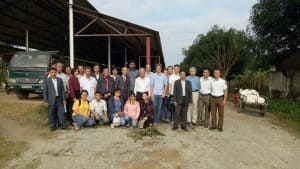GPSNR has completed a pair of legality studies that describe the relevant laws and regulations of Thailand and Indonesia that are relevant to smallholder rubber farmers. This work was produced by the European Forest Institute (EFI) with the financial support of the Global Platform for Sustainable Natural Rubber (GPSNR). These documents were produced in close collaboration with local legal and rubber industry experts contracted by EFI.
The legality matrix in these studies considers the applicable legislation for smallholders and also outlines typical compliance issues related to land and land-use rights, environmental protection, third parties’ rights, labor rights, human rights, and child labor. In addition, the documents also highlight the key obligations that farmers need to fulfill to ensure compliance with all relevant laws.
If you are a GPSNR member, you can access these by logging on the Members Portal here.
If you are not a member and would like to access the studies, please write to us at info@gpsnr.org.





